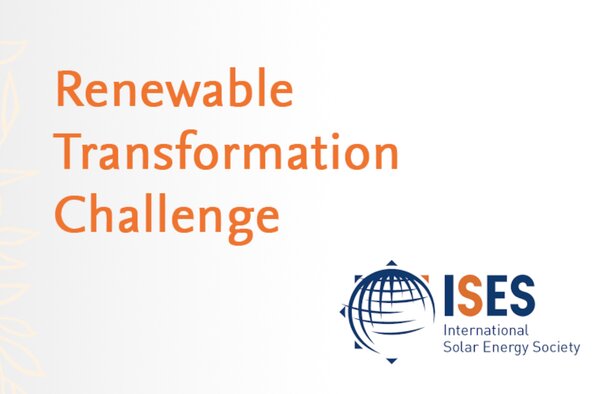Application Deadline: 12 September 2021.
Announcing the 3rd Renewable Transformation Challenge 2021. Elsevier and the International Solar Energy Society (ISES) are pleased to announce the third biennial Renewable Transformation Challenge.
If you have an innovative proposal which contributes to the goal of transitioning to 100% renewable energy, submit your application for a chance to win €20,000.
The objective of the Elsevier-ISES Renewable Transformation Challenge Promotion (“Challenge”) is to recognize and honor outstanding work encouraging progress towards a world powered by renewable energy and with accessible energy for all. This objective is consistent with the vision of the International Solar Energy Society (ISES), which is for a world powered by 100% renewable energy used efficiently and wisely and accessible for all.
The Challenge promotion is administered every two (2) years to recognize accomplishments by organizations such as private enterprises, NGO’s, and research institutions for undertaking projects and programs that help move the world toward an energy system supplied entirely by renewable energy sources, or for conducting the critical analyses that provide meaningful roadmaps for the transformation. The award winner represents one step towards furthering ISES’ vision of a world powered by 100% renewable energy. This vision requires a global transformation of our energy systems to efficient and affordable renewable energy sources. This transformation can only be achieved through private and civil society initiatives towards innovative and successful programs that adopt the use of renewable energy technologies and the intelligent application of energy efficiency measures. In the context of this Challenge, the energy transformation applies to all end-use energy consumption: power, heat, and transport.
Requirements
- Applications for the Challenge are invited from organizations who can demonstrate that they have established successful projects, innovative technologies, financing schemes, policy initiatives, or renewable energy programs, or from institutions that have undertaken research and analyses and identified solutions that demonstrate how this goal is being met.
- The Challenge can include either supply side (energy generation for end-use energy consumption) or demand side (including energy efficiency) programs, or both, and applicants may address any or all of the end-use energy sectors mentioned above.
The winning proposal will be the one that best demonstrates the potential to widen access to energy, particularly in developing countries, through a transformative application of renewable energy technologies, taking into consideration societal impacts, project replicability, environmental improvement, economic viability, and energy access.
Prize
There is a €20,000 prize for the first place entry. The winner, or one representative of the winning team, will be announced in October at the ISES World Congress 2021 at the online awards ceremony. The winner, or one representative of the winning team, will receive one Gold membership to the Society. The winning project will be featured on this site and on the ISES website.
Judging Criteria
A panel of international scientific experts, jurors, will review the applications, and the top ten will be put forward to Elsevier-ISES awards’ judging committee for the selection of the winning proposal. The judges will evaluate the applications based on the following evaluation criteria:
- Clearly demonstrates that the application supports a transformation to 100% renewable energy;
- Be replicable, scalable and sustainable;
- Set a benchmark for innovation – new ideas or concepts will be given preference over incremental improvement projects;
- Have practical applicability and a clear demonstration of impact; e.g. does it consider a feasible implementation plan?
- Be suitable for application in developing countries; consider the project’s social impact on local communities.
For More Information:
Visit the Official Webpage of the Elsevier-ISES Renewable Transformation Challenge 2021

